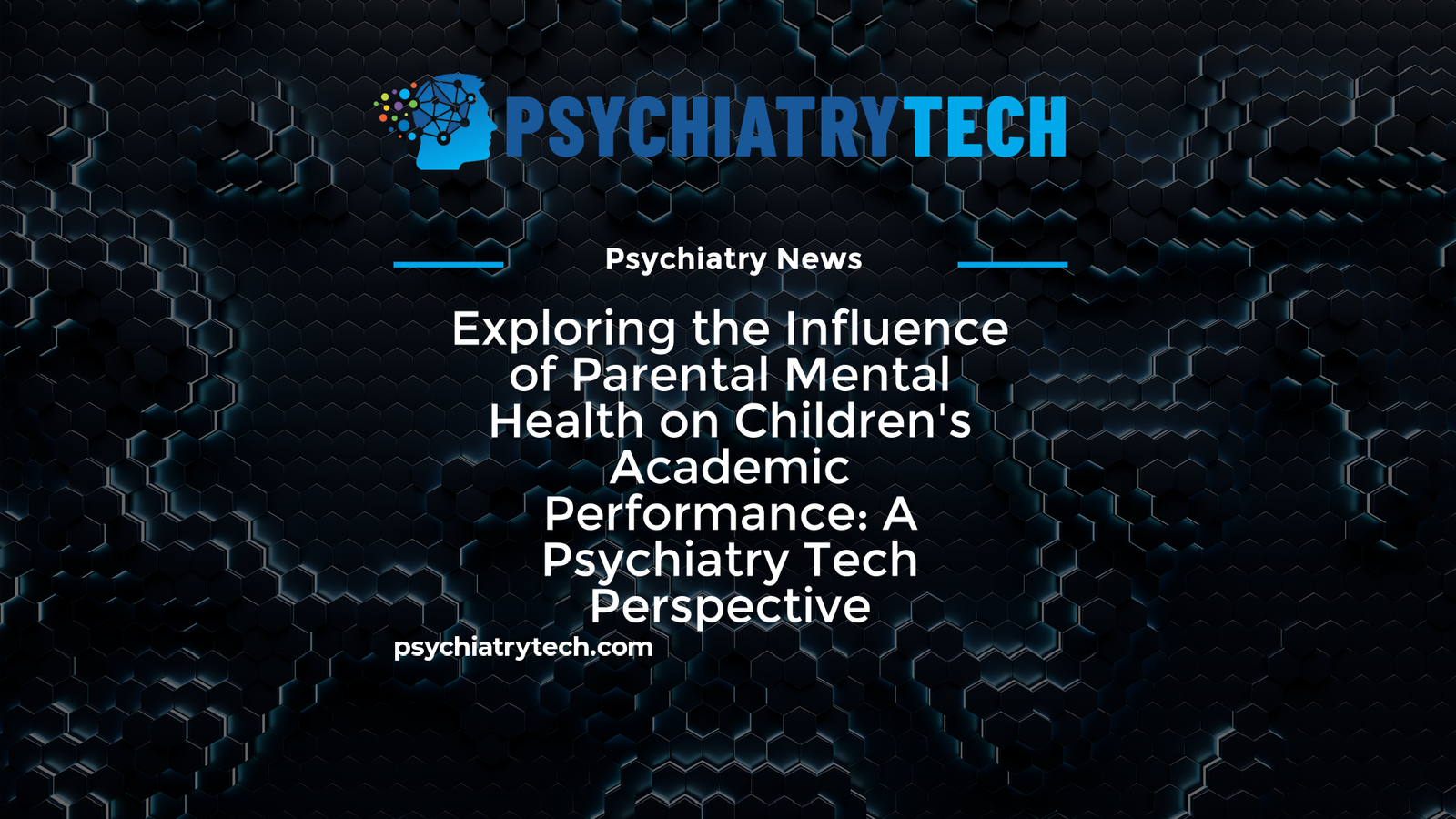Exploring the Influence of Parental Mental Health on Children’s Academic Performance: A Psychiatry Tech Perspective
It is a widely accepted fact that the mental health of parents can have a significant impact on the development of their children. However, a recent study has explored the link between parental mental health and children’s academic performance. Conducted by a team of researchers at Virginia Commonwealth University, the study reveals that children of parents with poor mental health are more likely to experience academic difficulties.

Discover The World's MOST COMPREHENSIVE Mental Health Assessment Platform
Efficiently assess your patients for 80+ possible conditions with a single dynamic, intuitive mental health assessment. As low as $12 per patient per year.
The Study
The study, which was published in the journal Social Science & Medicine, analyzed data from the Early Childhood Longitudinal Study-Birth Cohort, a large-scale study of children born in 2001. The researchers focused on data from children between the ages of six and seven, looking at their academic performance and their parents’ mental health.
The study found that children of parents with poor mental health were more likely to struggle in school. Specifically, these children had a higher likelihood of being held back a grade and experiencing difficulty with reading and math. Furthermore, the study found that maternal mental health had a stronger impact on children’s academic performance than paternal mental health.
The Implications
The implications of this study are significant, particularly for mental health professionals and educators. By understanding the link between parental mental health and children’s academic performance, these professionals can take steps to better support both parents and children.
For example, mental health professionals may want to consider offering counseling services to parents to help them manage their mental health challenges. Meanwhile, educators can work to identify children who may be struggling academically and provide appropriate interventions early on.
The Role of Psychiatry Tech
Advancements in technology have played a key role in revolutionizing psychiatry and mental health. Psychiatry tech offers a range of tools and innovations that can help support both parents and children affected by poor mental health.
One example is teletherapy, which allows mental health professionals to provide counseling services to parents and children remotely. This can be especially helpful for families who live in remote areas or who may have difficulty traveling to appointments.
Another key area of psychiatry tech is the development of mobile apps designed to support mental health. These apps can provide parents with tools and resources to manage their mental health challenges, including meditation exercises, breathing techniques, and mood tracking.
Conclusion
The link between parental mental health and children’s academic performance is an important one, and it underscores the need for greater support for families affected by mental health challenges. Mental health professionals and educators can work together to provide parents and children with the tools they need to succeed.
At Psychiatry Tech, we are committed to highlighting the latest innovations and advancements in psychiatry technology. By staying up-to-date on these trends, mental health professionals and enthusiasts can work together to ensure a brighter future for families affected by mental health challenges.
Do you know anyone affected by poor mental health? Share this post on your social media platforms to spread awareness and encourage others to learn more about the impact of parental mental health on children’s academic performance.

